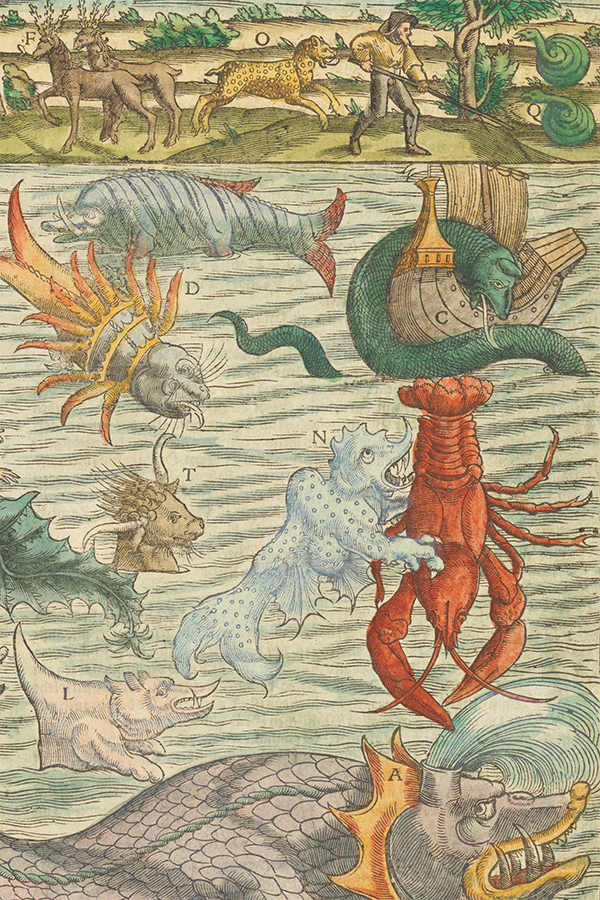Topic Director: Julia Verkholantsev
Associate Professor of Russian and East European Studies
Founding Director, Program in Global Medieval & Renaissance Studies
The concept of truth is ubiquitous and seemingly straightforward, yet upon closer examination, it proves to be elusive and intricately complex. Circular dictionary definitions of truth as “that which is true or in accordance with fact or reality” are futile and unsatisfying because each word leads to distinct strands of further interpretation and clarification.
We often see truth evoked in political and religious contexts, where it can be perceived as unequivocally one-sided and definitive, bestowing power and authority on its possessor. Within ethical systems, where truth confronts deception, manipulation, and falsehood, adherence to truth is indisputably esteemed as a moral virtue, associated with honesty, integrity, and honor. In the legal sphere, the concept of truth is linked to factual accuracy and serves as evidence in determining innocence or guilt during trials. In scientific and empirical research, truth is regarded as something that can be logically discovered and quantified.
The humanistic approach to understanding the notion of truth is marked by critical inquiry, reflective questioning, and an acceptance of uncertainty. Humanists acknowledge the inherent complexities of human nature, lived experiences, and cultural variances, recognizing that truth can also be imagined and understood as relative. This approach emphasizes the significance of the historical dimension in the production and interpretation of knowledge, examining the diverse ways in which truth is articulated, negotiated, and contested within specific social, cultural, and geopolitical contexts. In the fields of arts and letters, scholars engage with questions of intentionality, ambiguity, and the fragility of human perception, judgement, and imagination. Humanists across all disciplines are equally attentive to the aesthetic and psychological responses elicited by truth, recognizing that its presence or absence can evoke a range of emotional reactions and spiritual experiences.
Historians traditionally maintain that their primary goal is to convey the truth, even when they knowingly incorporate myths into their narratives or rely on scholarly constructs in their methodologies. Such truth claims, however, should be approached with caution. We understand that historical narratives are crafted using diverse and period-specific approaches, shaped by literary and visual rhetorical techniques, and that the presented facts may be influenced by aesthetic preferences, biases, hearsay, popularity, ignorance, and even deliberate fabrication. The instances of both intentional and accidental forgeries of historical documents, visual monuments, material artifacts, and narratives are notably perplexing. Is it possible that forgeries are ever created in the pursuit of truth?
Truth is inextricably intertwined with its numerous conceptual opposites: falsehood, dishonesty, error, delusion, misinformation, illusion, and self-deception. Each maintains a complex relationship with truth: what one side perceives as truth may be considered an error or falsehood by another. Illusions and self-deceptions can stem from either avoiding or unintentionally distorting facts, thus blurring the lines between reality and belief. Faith, opinion, doubt, and plausibility further complicate the black-and-white binary of right and wrong. Yet, by transcending mere facts, these phenomena offer insight into human cognition, emotions, visualization, and creativity.
In the 2025–2026 academic year, the Wolf Humanities Center will embark on a journey to explore the multifaceted challenges involved in recognizing, defining, and grappling with both absolute and relative notions of truth. Through a series of lectures, workshops, performances, exhibitions, and field trips, the Center aims to foster a stimulating intellectual and artistic environment for reflection and discussion, where humanities-oriented scholars, students, and the public will come together to ponder the ontological significance of truth.
Julia Verkholantsev, Topic Director
Jamal J. Elias, Director, Wolf Humanities Center
May 2024



